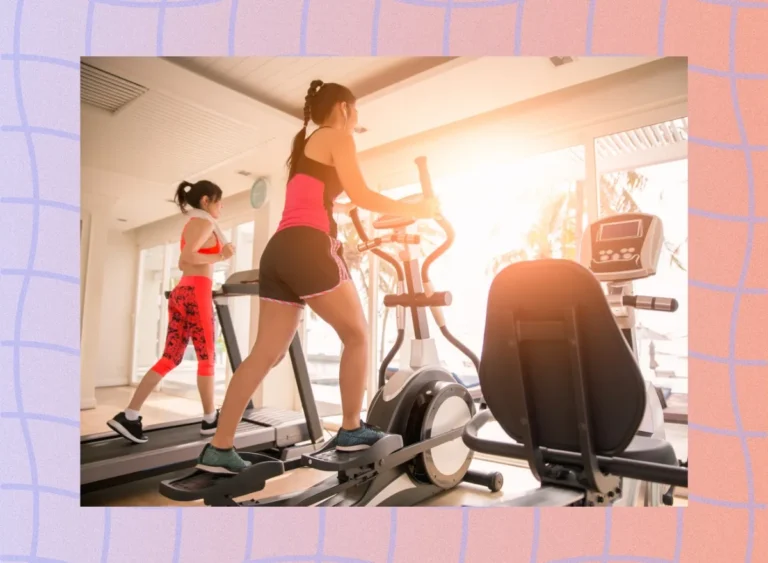Understanding Post-Exercise Fainting: Health Implications and Tips
Post-Exercise Fainting: What You Need to Know
Have you ever pushed yourself through a tough workout and suddenly felt lightheaded, like you might just float away? If so, you’re not alone. Post-exercise fainting can catch even the best athletes off guard. Fear not! In this article, we’ll dive deep into why some people faint after exercising, what health implications it carries, and tips to prevent it so you can keep enjoying your workouts without worrying about face planting on the gym floor.
What is Post-Exercise Fainting?
Post-exercise fainting, or syncope, can be a jarring experience. It’s when someone loses consciousness or feels dizzy after engaging in physical activity. This can range from just a moment of light-headedness to a full-on episode of fainting. Sounds scary, right? It’s crucial to understand what’s happening in your body and why it matters.
Why Does it Happen?
Let’s face it: our bodies are a complex mix of systems, and when we push them hard, things can go haywire. Here are some common reasons why you might feel faint after working out:
-
Dehydration: Your body is like a car; it runs best when it’s properly fueled. If you’re not drinking enough water before or during your workout, you can get dehydrated, leading to dizziness or fainting.
-
Low Blood Sugar: Ever tried working out on an empty stomach? It might feel like a good idea until your blood sugar plummets, leaving you feeling weak and faint.
-
Overexertion: If you’ve just thrown yourself into an intense workout you weren’t quite ready for, your body’s response can be to hit the brakes and say “Whoa!”
-
Heat Exhaustion: Working out in a hot space or during a heat wave can lead to overheating, and this might leave you feeling faint or sick.
-
Pre-existing Conditions: Some people may have medical conditions affecting blood pressure or blood flow. If this is you, it’s best to chat with a healthcare provider.
Identifying the Symptoms
Knowing what to look for can help you act quickly if you feel like you might faint. Common symptoms of post-exercise fainting may include:
- Lightheadedness or dizziness
- Nausea
- Blurred vision
- Weakness or fatigue
- Sweating excessively
- Feeling unusually hot or cold
If you experience any of these symptoms during or after exercise, it’s essential to take it seriously.
Potential Health Implications
Short-Term Effects
While a single fainting episode after working out might not seem alarming, it’s worth noting some short-term implications:
- Injury Risk: If you collapse, you might injure yourself, especially if you’re near equipment or hard surfaces.
- Disruption of Routine: A fainting episode can sideline you from workouts for a while, shattering your fitness momentum.
Long-Term Effects
Repeated instances of post-exercise fainting could be a sign of deeper issues that you shouldn’t ignore. Here are some long-term complications:
- Heart Issues: Recurring fainting spells could indicate heart problems. It’s wise to actively seek medical advice if you’ve experienced multiple episodes.
- Chronic Dehydration: If you frequently get dehydrated, you may face long-term kidney issues or other health concerns.
Tips to Prevent Post-Exercise Fainting
If fainting after exercise sounds like a nightmare you’d rather skip, here are some tried-and-true tips to help keep you grounded:
Stay Hydrated
- Pre-Hydrate: Drink water before your workout. Aim for at least 16-24 ounces about two hours before you exercise.
- Hydrate During: Keep sipping water throughout your workout, especially during long or intense sessions.
- Post-Hydrate: Don’t forget to rehydrate after exercising. Consider electrolyte drinks if you’ve been sweating a lot.
Monitor Your Diet
- Eat Something: Having a light snack packed with carbs and protein can help stabilize your blood sugar before working out. Think a banana with peanut butter or yogurt with fruit.
- Avoid Heavy Foods: Steer clear of heavy meals right before a workout as they require more energy for digestion, leaving you feeling sluggish.
Pace Yourself
- Gradual Warm-Up: Begin your sessions with a gentle warm-up to get your blood flowing without overexerting yourself.
- Listen to Your Body: If you’re feeling fatigued or dizzy during a workout, it’s perfectly okay to take a step back. Remember, there’s no medal for pushing through.
Be Mindful of Conditions
- Climate Counts: If you’re exercising in extremes—like in the sweltering summer sun or frigid winter weather—be aware that it can affect your performance and increase your fainting risk.
- Know Your Body: If you have any pre-existing health conditions, work closely with a healthcare professional to adjust your workout regimen accordingly.
When to See a Doctor
If you find yourself fainting often after exercising, it’s time to consult a healthcare professional. They might:
- Provide tests to investigate underlying health issues
- Offer advice on how to manage your training for better safety
- Work with you to create a personalized intervention plan
Don’t brush off these situations! Your health is your wealth.
Conclusion
Understanding post-exercise fainting can empower you to take control of your workouts and ensure your health remains a top priority. While it might feel overwhelming, remember that awareness is your best defense. By staying hydrated, eating well, pacing yourself, and listening to your body, you can minimize the chances of a fainting spell while enjoying your fitness journey.
FAQs
1. Is fainting after exercise normal?
While it can happen, especially in individuals new to exercising or those pushing their limits, it’s not considered normal. It’s essential to investigate recurrent fainting episodes.
2. How can I tell if my fainting is serious?
If fainting episodes happen regularly, are accompanied by additional symptoms (such as chest pain or breathing difficulties), or follow a head or neck injury, seek medical evaluation immediately.
3. What should I do if I start feeling faint while exercising?
Stop exercising, sit or lie down, and try to elevate your legs. Hydrate if water is available, and take slow, deep breaths. If symptoms persist, seek medical help.
4. Are certain exercises more likely to cause fainting?
High-intensity workouts, particularly without proper hydration or nutrition, can increase the likelihood of fainting. Listen to your body and avoid overwhelming yourself.
5. Can a medical condition cause fainting post-exercise?
Yes, various medical conditions, including heart issues and dehydration, can lead to fainting spells. If concerned, speak with your doctor for tailored advice.





